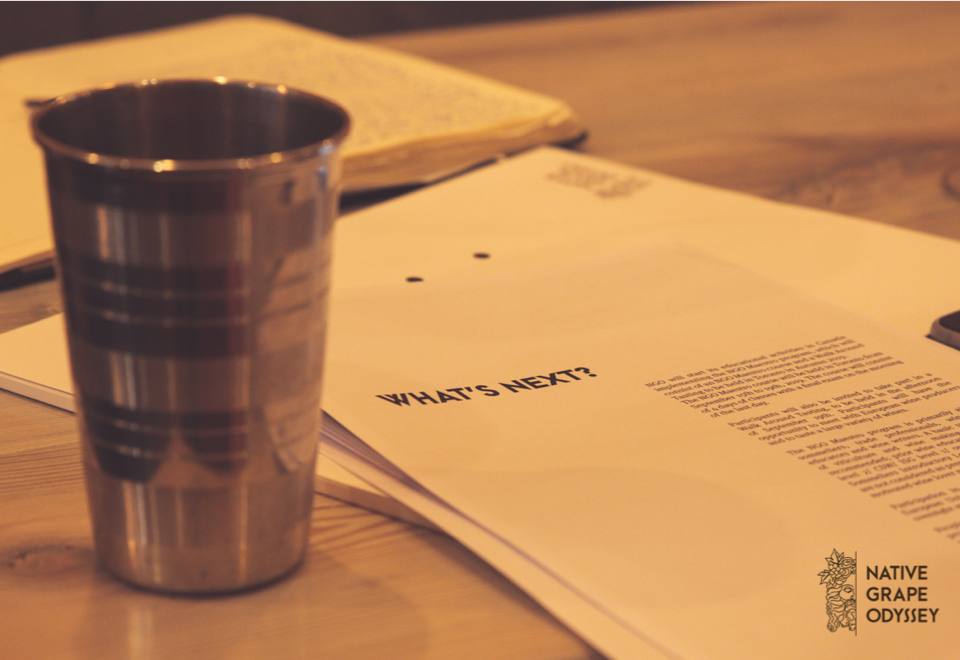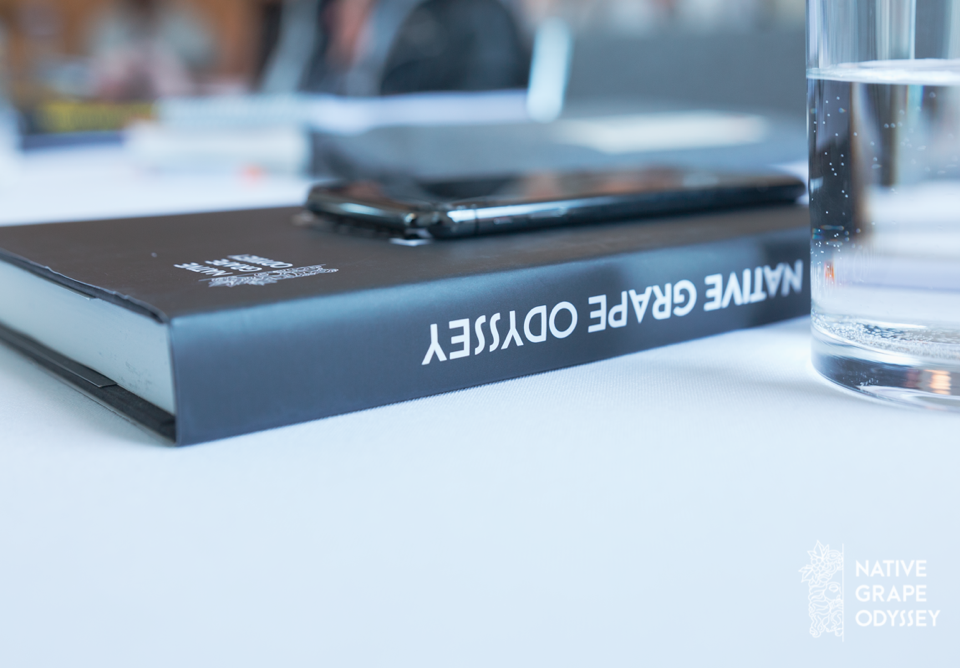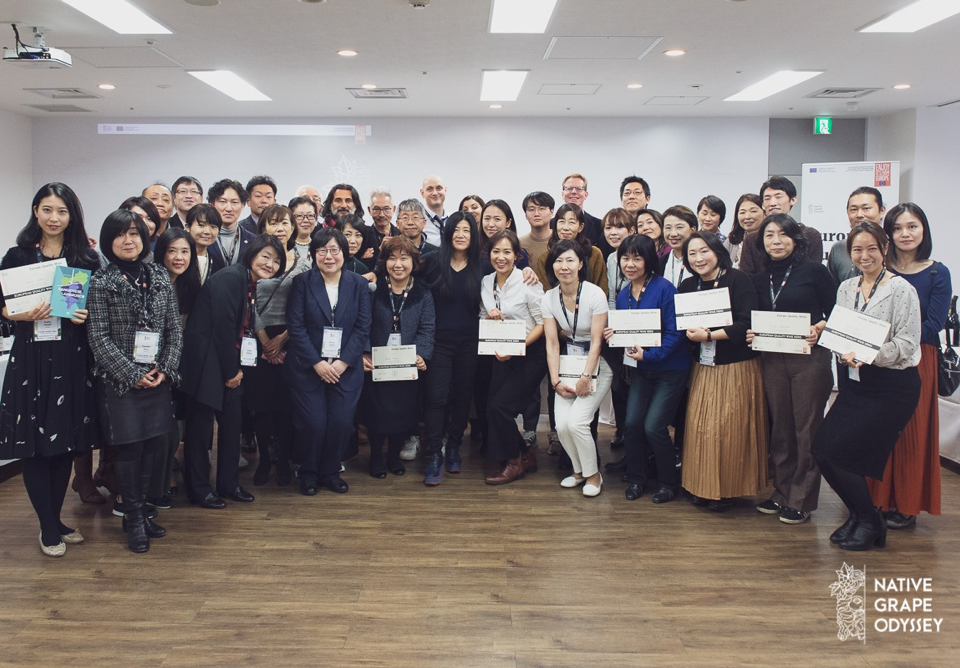
How to choose the right tool for the job: The Native Grapes Academy project isn’t sheepish about being bookish
October 14, 2019
Protected Designation of Origin (PDO), for a more protected Europe
October 30, 2019The approval of geographical indications as intellectual property in Russia is an important step for the local wine industry; it is a sign of positive change, promoting responsible and high-quality wine consumption. The European project Native Grapes Academy (NGA) is working towards the same goal and will carry out their first educational activity in Russia by organizing a course and Walk-Around Tasting on European wine; the course, named “Native Grape Odyssey Maestro Course”, is taking place from October 28 to November 1, and will be held in the capital city, at the Lotte Hotel.
A little more than a month after the conclusion of Native Grape Odyssey (NGO)’s first event in Canada, the NGO team is already ready to leave again, this time for Moscow. Similar to the Canadian edition, the project will carry out another five-day course (October 28 – November 1) on high quality European wine, with an emphasis on the importance of European designations and quality markers.
The signs coming out of the Russian wine market are favourable and will likely expedite the positive impact of the NGO course on the local wine community and clientele. According to a report by the World Health Organization published on October 1, 2019, alcohol consumption in Russia has decreased by 40% since it peaked in the early 2000s, which is an indication of change within the population’s lifestyle and a trend towards responsible consumption. There have been many actions taken by the Russian government to promote this change, including fighting a battle against counterfeit products that, unlike those with certified marks, are of lower quality and contain a high alcohol content. More recently, Federation President Vladimir Putin signed a new law establishing that geographical indications are considered as a type of intellectual property (Mondaq), in response to the growing demand for “authentic” products. Protecting wine products by establishing a link with the geographical origin of the grape variety is a novelty in Russia, and can be interpreted as proof that designations of origin have become “a sign that identifies the goods originating from a geographical territory, in which a certain quality, reputation or other characteristics are largely connected to its geographical origin“, as defined in the aforementioned law.
In line with market trends, the Project offers a comprehensive educational programme for wine professionals; their knowledge will lead them to become a point of reference for local consumers, and in turn, educate the public about responsible and thoughtful consumption. The core of the above program takes place over five days, therein students will undergo intensive lectures on European wines, following a deductive method that illustrates the characteristics of the wine from the territory of production and thereafter, deduces the characteristics of the grapes and their climatic, historical and cultural factors within that territory.
The forty aspiring European Quality Wine heroes will be led by Veronika Denisova and Vladislav Markin. Both belonging to the educational environment of the Wine School Enotria, the two are true lovers of European wine, particularly Italian wine, as demonstrated by their qualifications as Italian Wine Ambassadors, certified by the educational institution Vinitaly International Academy (VIA). In addition, both have significant teaching experience: Denisova is a lecturer, as well as the Deputy Director of the Enotria Wine School in Moscow, while Markin has been a lecturer at the wine school L’Appartement 83 for three years.

Stevie Kim, Managing Director of Vinitaly International, with Veronika Denisova and Vladislav Markin, teachers of the NGO Master Moscow course
The intention of the Project is not only to educate, but also to serve as a bridge between Europe and the target countries. The Walk-Around Tasting organized for October 28th at the Lotte Hotel will allow students to get to know the European producers directly, the hand that is behind these quality products. According to Markin, the strength of Walk-Around Tastings are as follows: “It is always a good point for the customers to see the people who produce their wines. You can feel their energy, speak about the philosophy behind their wines and ask valuable questions. It is almost like feeling of terroir through the producer”. This opportunity for tasting and networking takes on even greater value if we consider the setting: the Walk-Around Tasting will take place during Vinitaly Russia, the Moscow edition of the largest Italian wine fair in Europe, Vinitaly.
The Project adventure for 2019 doesn’t end here: the NGO Maestro course & Walk-Around Tasting will be realized in Tokyo as well. Those interested in the Japanese edition can still apply by filling in the form and answering the questionnaire at the following link: japan.nativegrapeodyssey.com/apply-japan/.
About: Native Grape Odyssey is a brand of the European Union project Native Grapes Academy (NGA). NGA is a project financed by the European Union and managed by Unione Italiana Vini and Interprofesional del Vino de España (OIVE) for the promotion of PDO and PGI European wines abroad, in particular in three countries: Japan, Canada and Russia. In order to achieve this, the Native Grape Odyssey educational program will organize wine seminars, workshops and b2b meetings both in these countries and in Verona, Italy, inviting wine experts and influencers from these countries. These events, realized in the span of three years (2019-21) aim at creating awareness about European native wines abroad, in particular Italian and Spanish wines, which share a long tradition and a high standard of quality.


